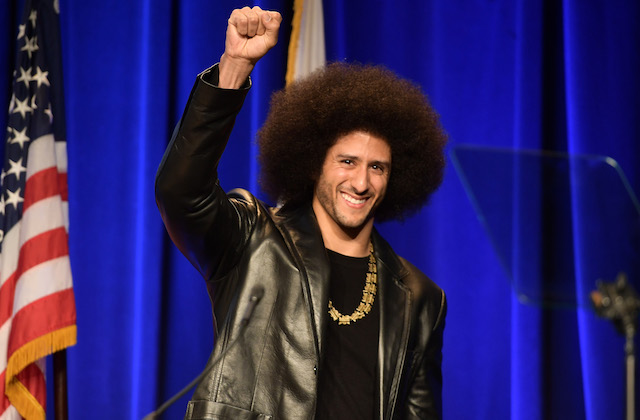NFL Exec Predicted Black Player Activism and The Pitfalls of Backlash in 1966 Memo

A newly discovered memorandum from 1966 shows that at least one National Football League (NFL) executive understood both the importance of Black player protests and the need to support racial justice causes.
The Undefeated published the full memo, titled “Some Observations on the NFL and Negro Players," today (February 1). Former player Claude “Buddy” Young, the league’s then-current director of player relations and first-ever Black executive, sent the five-page note to NFL commissioner Pete Rozelle in 1966. The Undefeated said that Rozelle included a coversheet intended for NFL and American Football League (AFL) owners which stated “Please give it your careful consideration.” Read the full report below:
As The Undefeated details, the report includes a number of policy arguments about Black players’ importance and positionality, especially significant during that era of Black activist movements. These points predict contemporary narratives about Colin Kaepernick, reactions to his kneeling protests, hiring inequity and league support for Black community advocacy. Here are a few telling excerpts:
- “Since the performance of [Black players] can specifically relate to box-office receipts, it is no exaggeration to suggest that their performances, and the performances of the other Negro players, has or may in the future be relegated to how they are treated, by teams as well as the team cities and communities, as whole men.”
- “It is conceivable, for example, that despite the record number of Negro players on NFL team payrolls, some incident, however slight (a Negro player whose militant stand on the rights issue being cut by one team, for example, strictly on the basis of his performance on the field) could spark a demonstration, large or small, or picketing by the more fiery extremist groups. In terms of the national picture, this might not be important, but it could cost a team at least some goodwill in its own area and increase tensions that already exist.”
- “With such a heavy proportion of Negro players, the NFL happens to be in a position to make great contributions—not only to the Negro cause, which admittedly not every [team] owner might agree to, but to its own competitive and financial situation, which is important to every owner, as well as to the League itself. Little or nothing has ever been done in this realm by professional baseball, basketball or boxing; football has the opportunity for a real contribution.”
- “Every team should have at least one full-time front-office man, perhaps the assistant player personnel director, who is a Negro. In addition to duties typical of personnel management, this Negro assistant should be continuously in touch with representative Negroes of the community—ministers; newspapermen; radio, television and other communications persons; businessmen; schoolmen, including secondary and college and university people; professional leaders; and other community-minded persons who are sensitive to, and communicative of, the sense of the Negro community.”
- “Negroes should also be employed in every department of a member-club. They should be represented as much on the sidelines, in the front office and in the background as on the field. …And deliberate pains should be taken to assure their presence.”
The Undefeated reported that the memo unexpectedly surfaced in the archives of Jim Burris, who was general manager of the Denver Broncos in 1966. Memorabilia collector Tom Jacobsen purchased Burris’ files in 2014, not noticing the document until he started searching through his acquisition late last year. The Undefeated did not specify how they obtained the memo from Jacobsen, but did speak to the collector, who said, “When I saw the subject line, where it talked about ‘Negro players,’ my first reaction was revulsion, honestly, because I thought it might be a racist document. Then I started reading through it, and I realized it was actually very progressive and courageous.”
The Undefeated shared the document with several people involved in sports activism. “It’s a very historically significant document, a visionary document,” said sociologist and former San Francisco 49ers consultant Harry Edwards. “It should be in [the Pro Football Hall of Fame], enshrined in a case like the Declaration of Independence.”
“It was almost like a premonition,” Philadelphia Eagles player and The Players Coalition leader Malcolm Jenkins said. “He could recognize that these players still have to go back to their communities and be Black men in America, and at some point they might feel they needed to take a stand. Honestly, some of the things in the memo are almost verbatim some of the same things we’ve been talking about.”
Kaepernick, who announced yesterday (January 31) that he completed his first $1,000,000 pledge to community organizations, declined to comment to The Undefeated.
